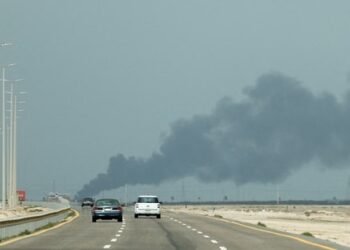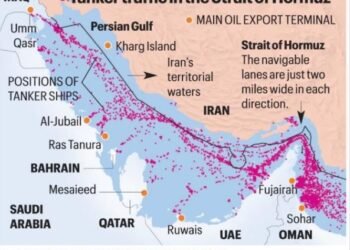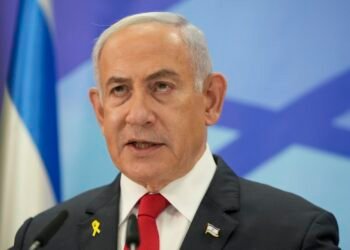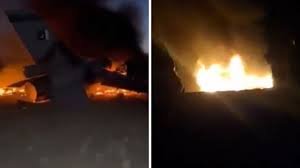Yes, Mr. Modi addressed reconciliation between hills and valley. Yes, he met displaced families in Churachandpur and Imphal, voicing the need for peace and prosperity. Yet, the absence of a firm assurance on justice and accountability risked diluting the promise of his visit. For two years, people have longed not for speeches, but for closure.
BY NAVIN UPADHYAY
Did Prime Minister Narendra Modi’s visit to Manipur move towards healing the wounds of victims still haunted by the horrors of May 3, 2023, when death stalked the streets and flames devoured the skies?
To answer that, we must return to that fateful day. May 3, 2023 — Manipur became a battlefield. Women were raped and paraded naked, men were butchered and beheaded, homes reduced to ashes. Thousands of weapons were looted as the police stood by—more complicit than protective. The nation watched in shame, then looked away.
When Flo and Olivia—now etched as symbols of those dark days of horror—were raped and lynched; when David Thiek was beheaded; when seven-year-old Tonsing Hangsing, was burnt alive along with his mother inside an ambulance on their way to a hospital—the brutality of Manipur’s tragedy became undeniable. Even for someone like me, who never covered the initial violence and is still a relative outsider to its trauma, someone who has covered dozens of carnages and mayhem, the sense of Manipur savagery feels chillingly real.
READ: Kuki MLAs Unite, Urge PM Modi for Early Political Settlement
For two years, the hills of Manipur have echoed with the cry for justice—sometimes breaking into protests, sometimes erupting into violence, often sinking into despair. Yet beyond the occasional coverage by TV crews and YouTubers, India has all but forgotten Manipur. Truth has been buried, injustice silenced. September 13, marked by the Prime Minister’s presence, signaled a call for unity, while the search for justice continues.
Yes, Mr. Modi spoke of reconciliation between the hills and the valley. Yes, he met displaced families in Churachandpur and Imphal, and called for peace and prosperity. Still, many felt that his silence on justice and accountability left the message incomplete. For two long years, people have waited—not for words, but for closure, for exemplary punishment of the perpetrators, whether Kuki or Meitei.
READ: Tribal Leaders Vow Never to Abandon Union Territory Cause
Justice in Manipur is not only about prosecuting criminals. It is about healing lives reduced to rubble. It is about the families still trapped in relief camps, their children without schools, their youth without jobs, their elders battling illness in skeletal bodies and broken spirits. It is about those whose homes were burnt in Imphal, their life savings consumed in the fires of ethnic hate. Even survivors were plundered, their houses stripped to the last nail, their memories erased.
And what of the perpetrators? Two years on, not a single meaningful conviction has been secured. How is it that women could be brutalized, men could be slaughtered, and entire neighbourhoods set ablaze, and yet justice has not touched even the fringe of those responsible? Who gave mobs the confidence to wreak havoc? Who instructed the police to look away? And who has shielded the masterminds behind the curtain?
READ:
PM Modi Pushes Reconciliation Between Hills & Valley, Glosses Over UT Demand https://t.co/mbw3WWBWzG #ModiInImphal #ManipurPeace #UnityInDiversity #DevelopmentForAll
— POWER CORRIDORS (@power_corridors) September 13, 2025
There is another layer, one more sinister: the political. Former Chief Minister N. Biren Singh’s alleged audio tape—rumoured to contain evidence that could unravel the truth behind the orchestrated violence—remains in limbo. The handling of this by CFSL has raised more questions than answers. Can reconciliation ever be genuine unless the tape is analysed impartially and truthfully? The demand to send it to a foreign lab, and to receive a time-bound, credible report, is not unreasonable—it is essential. Otherwise, reconciliation is not reconciliation at all; it is a cover-up.
The truth is, reconciliation without justice is an illusion. You cannot stand in a graveyard of sorrow, surrounded by broken families, burnt homes, shattered dreams, and expect songs of peace and love to rise. People cannot be asked to “move on” when their lives are still chained to the camps, when their justice has been delayed and denied, when their wounds remain open and untreated.
This is why questions will not fade. They will keep resurfacing, haunting the nation: Did the Prime Minister’s visit truly heal the wounds of Manipur? Or was it another exercise in optics, another carefully choreographed performance in a state that continues to cry in silence?
Until justice is delivered—real, visible, uncompromising justice—Manipur’s wounds will remain unhealed, its cries unanswered. And the silence of the dead will continue to echo louder than the words of any leader.














